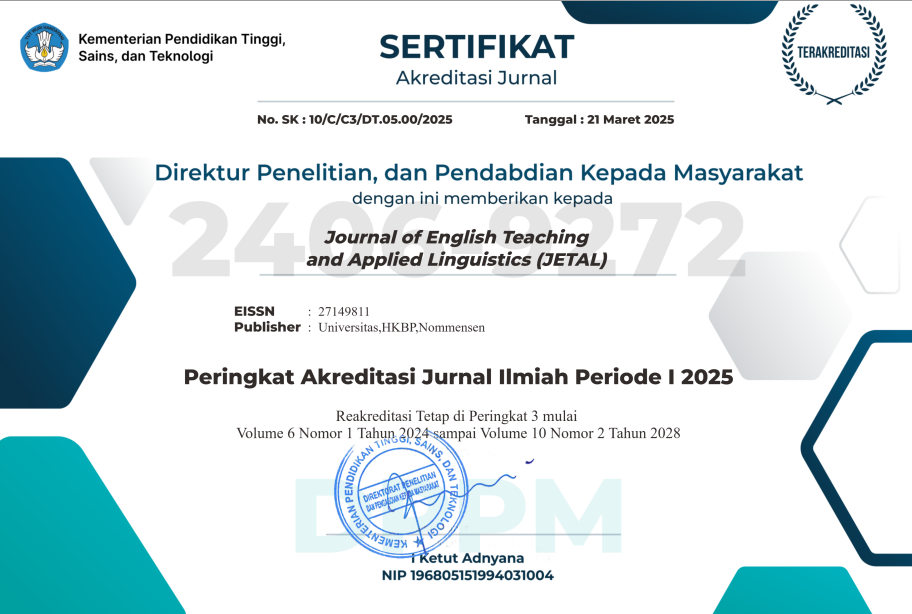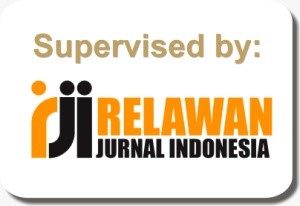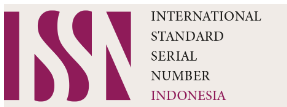The Use of Infographics to Improve Students’ Reading Comprehension Skills
Abstract
Reading comprehension is a difficult thing for students to do. This can happen due to several factors including the learning medium used in the process. The aim of this research was to describe how infographics can improve students’ reading comprehension of procedure texts. This research employed a classroom action research method. The subjects of this study were 33 tenth-grade students. The instruments in this study were tests, questionnaires, observations and interview. The findings of the study showed that students’ reading comprehension improved significantly, as evidenced by the mean score of the post-test being 86 which was higher than the mean score of the pre-test which was 77. In addition, students’ responses to the use of infographics in procedural texts were positive. In this regard, this study suggests that infographic media can be an effective tool to improve reading comprehension skills in various educational settings, which has the potential to benefit EFL learners.
References
Ahmed Adel Abd El Fattah Mohamed. (2020). Awebsite based on Infographic for Developing Students’ Reading Comprehension of Economic Issues. International Journal of Engineering Research And, V9(02), 434–442. https://doi.org/10.17577/ijertv9is020138
Aini, A., Fitri, N., & Aisyah, S. (2023). An Analysis of Students’ Difficulties in Reading Comprehension at Eleventh Grade of Senior High School 8 Jambi City. JELT: Journal of English Language Teaching, 7(1), 7.
https://doi.org/10.33087/jelt.v7i1.127
Aulia, H. R., Laeli, A. F., & Ulwiyah, S. (2023). Problem Based Learning as a Method to Improve Senior High School Student’s Reading Comprehension in English. ELTR Journal, 7(2), 77–85. https://doi.org/10.37147/eltr.v7i2.171
Bhat, S. A., & Alyahya, S. (2024). Infographics in Educational Settings: A Literature Review. IEEE Access, 12(November 2023), 1633–1649. https://doi.org/10.1109/ACCESS.2023.3348083
Bystrova, T. (2020). Infographics As a Tool for Improving Effectiveness of Education. KnE Social Sciences, 2020, 152–158. https://doi.org/10.18502/kss.v4i13.7710
de Oliveira, A. M., Santos, J. L. F., & Capellini, S.
A. (2023). Reading comprehension performance of elementary and senior high school students. Frontiers in Education, 8(May), 1–9. https://doi.org/10.3389/feduc.2023.1086040
Dewantari, F., Utami, I. G. A. L. P., & Santosa, M.
H. (2021). Infographics and independent learning for English learning in the secondary level
context. Journal on English as a Foreign Language, 11(2), 250–274. https://doi.org/10.23971/jefl.v11i2.2784
Dipa, P. S., Utami, I. G. A. L. P., & Made Hery Santosa. (2022). English Learning Using Infographics for Balinese Secondary School Students. PANYONARA: Journal of English Education, 4(1), 1–16. https://doi.org/10.19105/panyonara.v4i1.5852
Efendi, M. A. (2021). The Use of Pictures as Media to Improve Students’ Reading Comprehension. Journal of English Teaching, Literature, and Applied Linguistics, 2(2), 84.
https://doi.org/10.30587/jetlal.v2i2.2467
Fadilah, I. A., Jaya, A., & Uzer, Y. (2023). Visual Representation and Comprehension: the Exploration of Multimodal Text to Energize Reading of the Tenth Grade Students at State Vocational High School 5 of Palembang. Esteem Journal of English Education Study Programme, 6(1), 125–130.
https://doi.org/10.31851/esteem.v6i1.10226
FALENTINA, R., Astuti, D. S., & Sari, D. S.
(2022). The Effectiveness of Infographic in Teaching Reading Comprehension. Journal of English Language Teaching and Education (JELTE), 3(1), 51–61.
https://doi.org/10.31571/jelte.v3i1.116
Gaber, S. A., Allam, S. F., El-Amin, M. A. M., Hamad, A. M., Abdel Fattah, N. E. E., Ibrahim, A. H., Al Hasan, S. A., Al-Ali, O. A., & Alboray, H. M. (2023). Improving the Reading and Writing Skills of Students with Mild Intellectual Disability: The Effectiveness of Infographics. International Journal of Learning, Teaching and Educational Research, 22(11), 1–
17. https://doi.org/10.26803/ijlter.22.11.1
Jr,PhD, B. B. R. (2022). English Text Readability and Reading Comprehension Performance of Grade 11 Senior High School Students. International Journal of Multidisciplinary Research and Analysis, 05(10), 2819–2823. https://doi.org/10.47191/ijmra/v5-i10-33
Khairunnisa, A. I., Usman, S., & Wahyudin, W. (2023). Reading Comprehension Difficulties Encountered by the First-Grade Students of Senior High School. E-Journal of ELTS (English Language Teaching Society), 11(1), 53–61. https://doi.org/10.22487/elts.v11i1.3698
Khan, I. A. (2023). Psychology of color, integration of local culture and effect of infographics on English language learning. PSU Research Review. https://doi.org/10.1108/PRR-02-2021- 0013
Khasawneh, D. Y. jadallah abed, & Khasawneh,
D. M. A. S. (2023). The Effectiveness of using Infographics on the Academic Achievement of Elementary Students. Migration Letters, 20(5), 1258–1271.
https://doi.org/10.59670/ml.v20i5.4968
Kong, J. E., & Chun, H. (2023). Korean EFL Learners’ Perspectives on Creating Infographics
through Paraphrasing to Promote English Reading and Writing Skills. Studies in English Education, 28(1), 25–49. https://doi.org/10.22275/see.28.1.02
Lastari, D. S., & Silvana, R. (2020). the Effects of Summarizing Using Infographics on Efl Learners’ Reading Comprehension. Globish: An English-Indonesian Journal for English, Education, and Culture, 9(2), 128. https://doi.org/10.31000/globish.v9i2.2707
Lestari, S., & Purnama, D. W. (2023). The Effectiveness of Infographics Towards Students’ Reading Comprehension. Journal on Education, 6(1), 395–405.
https://doi.org/10.31004/joe.v6i1.2953
Manickam, R., & Aziz, A. A. (2020). The Effectiveness of Using Infographics as an Aid for Reading Comprehension. Asia Proceedings of Social Sciences, 6(3), 226-229.
https://doi.org/10.31580/apss.v6i3.1224
Meialldy, I. G. K. (2021). The Use of Infographic to Enhance EFL Students’ Reading Interest. Journal of Educational Study, 1(1), 60–66. https://doi.org/10.36663/joes.v1i1.154
Mustopa, R. A., Damaianti, V. S., Mulyati, Y., & Anshori, D. S. (2024). Investigating Senior High School Students’ Metacognition in Indonesian Learning Reading Comprehension: Does it Have a Positive Impact? International Journal of Language Education, 8(2), 322–342. https://doi.org/10.26858/ijole.v8i2.64112
Nurdianingsih, F. (2021). Teachers’ Strategies in Teaching Reading Comprehension. PROJECT (Professional Journal of English Education), 4(2), 285. https://doi.org/10.22460/project.v4i2.p285-289
Retnaningtyas, N., Damaianti, V. S., Mulyati, Y., & Sastromiharjo, A. (2024). Students’ Abilities in Reading Infographics Text in Junior High Schools. International Journal of Language Education, 8(3), 487–502. https://doi.org/10.26858/ijole.v8i3.66492
Rohma, F., & Fawaid, A. (2023). Analysis of Students’ Difficulties in Reading Texts to Increase Reading Comprehension in Islamic Senior High School. Al Qalam: Jurnal Ilmiah Keagamaan Dan Kemasyarakatan, 17(3), 2003. https://doi.org/10.35931/aq.v17i3.2205
Sari, T. R., Yana, D., Edi, W., & Putri, A. (2024). A Correlation between Digital Literacy and EFL Students' Reading Comprehension at Higher Education. Lectura: Jurnal Pendidikan, 15(2), 315-326.
https://doi.org/10.31849/lectura.v15i2.20132
Sinambela, E., Padang, I., & Pasaribu, A. N. (2023). The Effect of Mind Mapping and Semantic Mapping on Reading Comprehension of the Eleventh Graders of Senior High School. IDEAS: Journal on English Language Teaching and Learning, Linguistics and Literature, 10(2), 2100–2112.
https://doi.org/10.24256/ideas.v10i2.3060

This work is licensed under a Creative Commons Attribution-ShareAlike 4.0 International License.
Authors retain copyright and grant the journal right of first publication with the work simultaneously licensed under a Creative Commons Attribution-ShareAlike 4.0 International License (CC BY-SA 4.0) that allows others to share the work with an acknowledgment of the work's authorship and initial publication in this journal.
Authors are able to enter into separate, additional contractual arrangements for the non-exclusive distribution of the journal's published version of the work (e.g., post it to an institutional repository or publish it in a book), with an acknowledgment of its initial publication in this journal.
Authors are permitted and encouraged to post their work online (e.g., in institutional repositories or on their website) prior to and during the submission process, as it can lead to productive exchanges, as well as earlier and greater citation of published work (See The Effect of Open Access).






